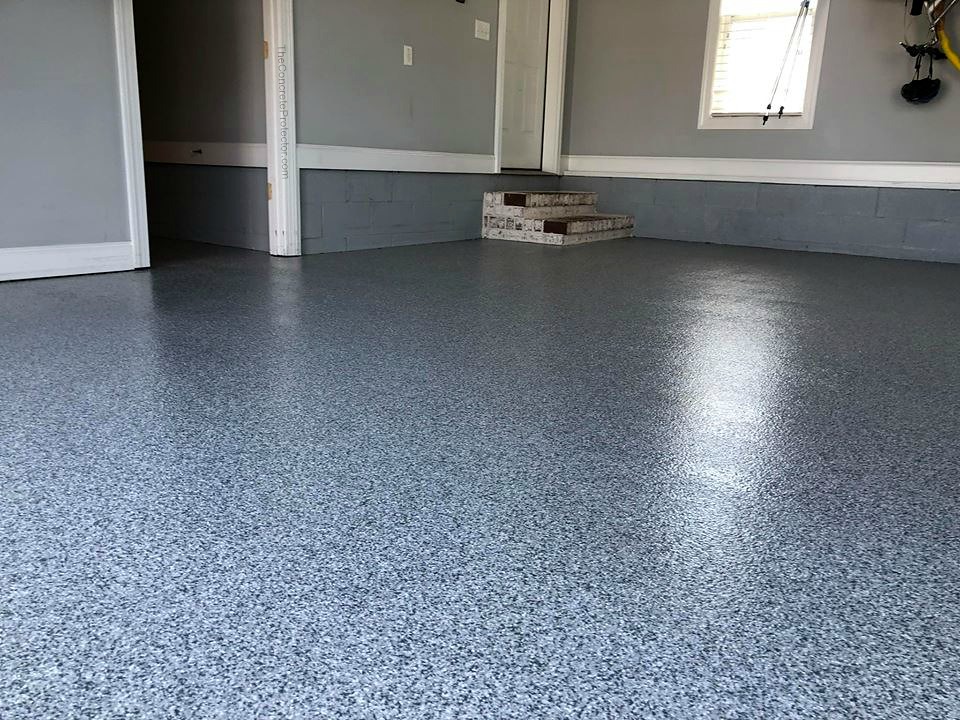The Ultimate Guide to Garage Floor Coatings: Transform Your Space
Garage floor coatings have become increasingly popular among homeowners looking to enhance the appearance and functionality of their garage spaces. These specialized treatments not only improve the aesthetic appeal of your garage but also provide crucial protection against stains, chemicals, and wear and tear. Whether you're a DIY enthusiast or simply want to upgrade your garage's look, understanding the world of garage floor coatings is essential for making an informed decision.

Why should you consider a garage floor coating?
Investing in a garage floor coating offers numerous benefits beyond just improving the look of your space. First and foremost, these coatings provide a protective barrier against oil spills, chemicals, and other substances that can stain and damage concrete floors. This protection makes cleaning up spills and messes much easier, saving you time and effort in the long run. Additionally, garage floor coatings can increase the overall value of your home by creating a more polished and professional appearance in what is often an overlooked area of the house.
What types of garage floor coatings are available?
While epoxy and polyurethane are the most popular options, there are several types of garage floor coatings to choose from:
-
Epoxy coatings: Known for their durability and chemical resistance, epoxy coatings create a hard, glossy surface that’s ideal for high-traffic areas.
-
Polyurethane coatings: These offer excellent UV resistance and flexibility, making them a great choice for garages exposed to sunlight or temperature fluctuations.
-
Acrylic coatings: A more affordable option, acrylic coatings provide basic protection and are easy to apply but may not be as durable as epoxy or polyurethane.
-
Polyaspartic coatings: These fast-curing coatings offer a balance of durability and flexibility, making them suitable for both residential and commercial applications.
How do you prepare a garage floor for coating?
Proper preparation is crucial for the success and longevity of your garage floor coating. The process typically involves the following steps:
-
Cleaning: Thoroughly clean the floor to remove dirt, grease, and other contaminants.
-
Repairing: Fill any cracks or holes in the concrete to ensure a smooth surface.
-
Etching: Use an acid etching solution or mechanical grinding to create a porous surface that will allow the coating to adhere properly.
-
Priming: Apply a primer to improve adhesion and prevent moisture from interfering with the coating.
-
Drying: Allow the floor to dry completely before applying the coating.
What is the application process for garage floor coatings?
The application process for garage floor coatings varies depending on the type of coating and the specific product being used. However, most coatings follow a similar general process:
-
Mix the coating components according to the manufacturer’s instructions.
-
Apply the first coat using a roller or squeegee, ensuring even coverage.
-
Allow the first coat to dry completely.
-
Apply a second coat for added durability and a more uniform appearance.
-
If desired, add decorative flakes or non-slip additives between coats.
-
Allow the final coat to cure fully before using the garage.
What are the costs associated with garage floor coatings?
The cost of garage floor coatings can vary widely depending on factors such as the type of coating, the size of your garage, and whether you choose a DIY approach or professional installation. Here’s a general overview of pricing for different options:
| Coating Type | DIY Cost (materials only) | Professional Installation |
|---|---|---|
| Epoxy | $200 - $600 | $1,500 - $3,000 |
| Polyurethane | $250 - $800 | $2,000 - $4,000 |
| Acrylic | $100 - $300 | $800 - $1,500 |
| Polyaspartic | $300 - $1,000 | $2,500 - $5,000 |
Prices, rates, or cost estimates mentioned in this article are based on the latest available information but may change over time. Independent research is advised before making financial decisions.
When considering garage floor coatings, it’s important to weigh the initial cost against the long-term benefits and durability of the coating. While professional installation may seem costly upfront, it often results in a higher-quality finish and longer-lasting protection for your garage floor.
In conclusion, garage floor coatings offer a practical and attractive solution for improving the appearance and functionality of your garage. By understanding the different types of coatings available, the preparation and application processes, and the associated costs, you can make an informed decision about whether a garage floor coating is right for your home. With proper installation and maintenance, a quality garage floor coating can provide years of protection and enhance the overall value of your property.






